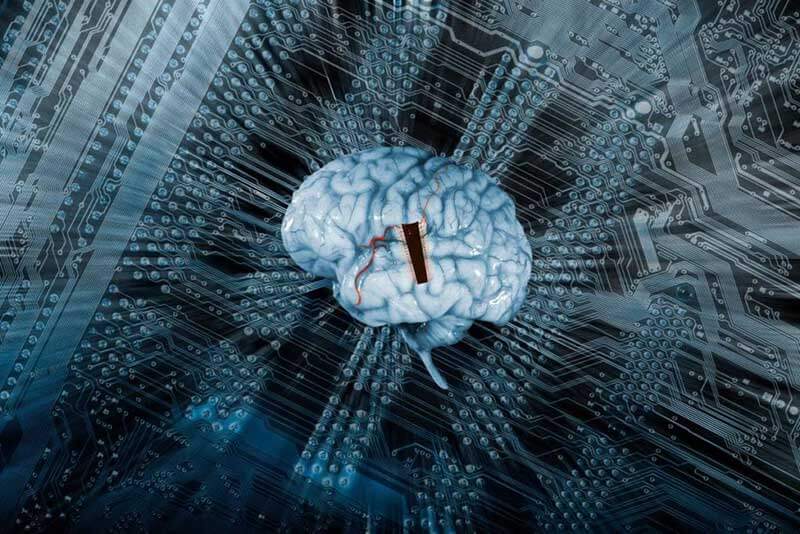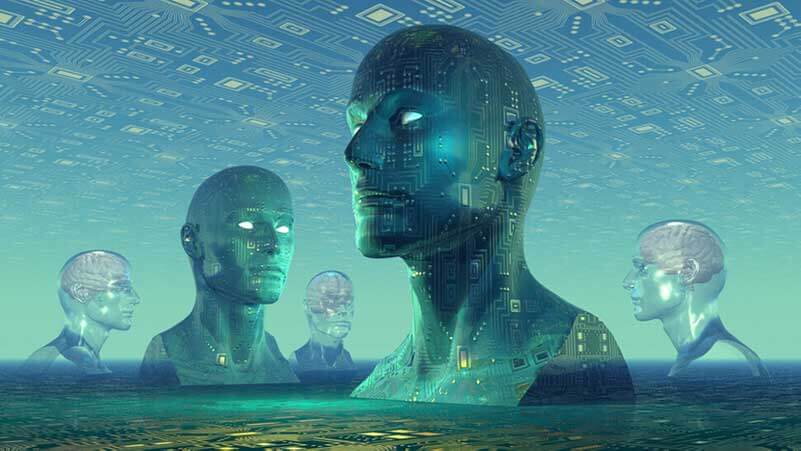Is It Possible to Upload Your Consciousness to a Computer
- The United states startup Nectome wants to upload your mind to the cloud
- The 2045 Initiative promises to help humanity attain immortality by 2045
- Current bear witness suggests that mind uploading is theoretically possible
- The practical and upstanding issues of mind uploading
Achieving immortality has long been humanity's holy grail. Ever since we offset became aware of the fragility of our own existence, we've been looking for ways to cheat death and prolong our lives indefinitely. Although advancements in medicine accept enabled u.s. to significantly increase our lifespan, true immortality has remained out of reach. Achieving concrete immortality may very well evidence to exist beyond our capabilities, just what almost digital immortality?
The US startup Nectome wants to upload your mind to the cloud
A U.s. startup called Nectome recently unveiled plans to help humanity achieve digital immortality by preserving the encephalon – using a revolutionary new embalming technique – and subsequently uploading it to the deject. The process is chosen vitrifixation, or Aldehyde-Stabilised Cryopreservation. Information technology involves replacing the blood period in the brain with embalming chemicals that preserve its neuronal structure in microscopic detail, basically past turning it into 'frozen glass'. "Y'all tin call up of what we do as a fancy course of embalming that preserves not simply the outer details simply the inner details," explains Robert McIntyre, a co-founder of Nectome.

There are a couple of caveats, though. The biggest one is that you tin't actually survive the procedure. Furthermore, in social club for it to work, information technology needs to be performed on a living encephalon. If the brain has been dead even for a curt amount of fourth dimension, it will get irreparably damaged and the procedure won't be successful. That means that it would essentially be a form of suicide, which would make information technology legal just in those Us states that permit euthanasia, such as California. Another major downside is that Nectome all the same isn't fifty-fifty close to developing a method for reviving or uploading the preserved brain to the deject.
Nonetheless, this uncertainty didn't finish people from investing in the idea, with 25 people already having joined the waiting list by paying a $ten,000, fully-refundable deposit. I of those people is Sam Altman, the chief executive of the successful startup accelerator Y Combinator, which recently welcomed Nectome into its fold. The company managed to raise more than $ane 1000000 in funding so far and was awarded 2 prizes by the Brain Preservation Foundation, too as a big regime grant to collaborate with MIT. All the same, the widespread public criticism that followed the waiting list announcement resulted in MIT cut all ties with Nectome.
The 2045 Initiative promises to help humanity attain immortality by 2045
Nectome isn't the but company working on uploading our minds to a computer. In 2011, the Russian businessman and billionaire Dmitry Itskov founded the 2045 Initiative, an organization that aims to assist humanity reach immortality by 2045. "Within the next 30 years, I am going to make certain that nosotros can all live forever," claims Itskov. "The ultimate goal of my program is to transfer someone's personality into a completely new trunk".
The 2045 Initiative has laid out its programme in three stages. The start stage involves edifice a humanoid robot called the Avatar, and a cut-edge encephalon-estimator interface organization. The second stage consists of edifice a life support system for the human brain, and linking it with the Avatar. The third and final phase involves creating an artificial encephalon that would hold the original individual consciousness.
Electric current evidence suggests that heed uploading is theoretically possible
So, tin information technology really exist washed? Is information technology really possible to upload a mind to a computer? The short answer is: aye, theoretically. "All of the evidence seems to say in theory it'south possible – information technology's extremely difficult, but it's possible," says neuroscientist Randal Koene, the scientific director of the 2045 Initiative. The human brain is an incredibly complex organ, consisting of near 86 billion neurons that constantly exchange information with one another. All of the connections between the neurons in a brain are called the connectome, and many scientists believe that this connectome actually holds the information that makes united states of america who nosotros are. And mapping it could potentially allow us to recreate a person's mind.
Our electric current assumption is that all brain activeness is computable. If that'south truthful and the brain does work like a computer, and if we could discover a way to map that activity, scan the brain at the necessary level of item, translate the browse in a way that would allow us to reconstruct the brain's neural network and create a faithful simulation, and if we had enough computing power to run such a simulation, so we should be able to recreate the human mind in a computer. That'due south a lot of ifs, just until we know different, information technology remains in the realm of possibility. Even so, information technology'south a very remote possibility at this indicate. "We are pitifully far away from mapping a man connectome," says Dr Ken Hayworth, a neuroscientist at the Janelia Enquiry Campus in Virginia. "To put it in perspective, to image a whole fly brain it is going to take us approximately one to ii years. The idea of mapping a whole man brain with the existing technology that we accept today is simply impossible."
The applied and ethical issues of listen uploading
The main trouble is that in that location are and so many things about the human brain nosotros don't know yet. We don't know how the heed is created. We don't know what consciousness is or how to measure it, then even if we were able to create a simulation of the human brain, we wouldn't be able to make up one's mind whether that simulation really is conscious. Nosotros don't fifty-fifty know exactly which brain structures and biomolecules need to be preserved to recreate a person'southward retentivity or personality, or if information technology's fifty-fifty possible.
Many scientists are sure it can't be washed. "Y'all cannot lawmaking intuition; you cannot code aesthetic beauty; yous cannot code dear or detest," argues Dr Miguel Nicolelis, a neuroscientist at Duke University. "There is no way yous will ever see a human brain reduced to a digital medium. Information technology's simply impossible to reduce that complexity to the kind of algorithmic process that you lot will have to have to do that."

The whole idea is too rife with upstanding bug, and some experts are suggesting that 'Can we do it?' isn't even the correct question to enquire. Instead, what we should exist request is 'Should we do it?'. Let's say that we've successfully uploaded a human heed onto a computer. Does that mean that personal identity has also transferred along with memories and that this person is withal the same? Or is it a new person with a unlike identity that simply happens to share the same memories? What rights would this digital person have? And if y'all could create one re-create of yourself, why wouldn't yous exist able to create multiple copies? In that case, which one of those copies would be the 'existent' yous? And since you wouldn't take a physical body anymore and would essentially be reduced to a stream of information, who would that data belong to? Who would own you? How could you forestall major corporations from misusing your data?
Mind uploading is a fascinating concept, but nosotros're not certain yet whether it's fifty-fifty possible. Our existing engineering science and our understanding of the human brain aren't advanced plenty to answer that question at this fourth dimension. Even if uploading the human listen onto a computer eventually turns out to be impossible, the thought is still worth pursuing farther, because the engineering Nectome and others are working on could accept many other useful applications. For instance, it could facilitate brain banking for future research into wellness and disease states, help us discover new brain disorder drugs, or enhance our bones neuroscience circuit mapping.
Source: https://blog.richardvanhooijdonk.com/en/in-a-future-of-mind-uploading-will-you-still-be-you-and-who-will-own-your-mind/
0 Response to "Is It Possible to Upload Your Consciousness to a Computer"
Post a Comment